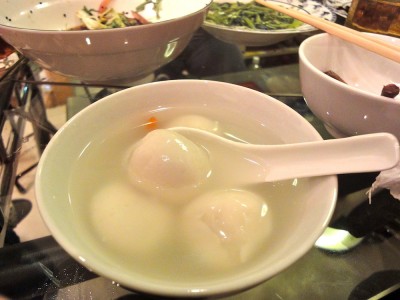A is before B. And U before me. Cz is pronounced “tsh”, but you’ll still find it under C.
The alphabet is great. Not only does it allow us the verbal and written communication – it also gives us the possibility to create completely new word-creations.
However, one talent of the alphabet is completely under-rated until you arrive on the other side of this planet: it’s ability to bring order.
 Whether it’s sorting the file cabinet, the CD- or the book shelf – lot’s of people would have a hard time without that alphabet. It eases the checking of the attendance list in class and provides for a clear structure in the mobile phone’s address book.
Whether it’s sorting the file cabinet, the CD- or the book shelf – lot’s of people would have a hard time without that alphabet. It eases the checking of the attendance list in class and provides for a clear structure in the mobile phone’s address book.
Want to sort according to the first or the last name? One click and you know where to look for – and find – your friend’s numbers.
But what if you’re not about to sort Tamara and Aaron into some list, but need to deal with 静 and 建国? (let’s ignore for the moment that in China you wouldn’t sort by the first name, but rather by the last name – well, if we can call it “last name” anyway)
Looking for answers we firstly run into the usual Chinese traps: one asks a direct question like, let’s say: “how do you sort things in China?” and wakes up about an hour later, being stuck in an exhausting and hot tempered discussion. A discussion without any foreseeable end or a definite answer.
Still, I’ll give it a try to summarize it from a European point of view:
Luckily, the old times (about 50 years or so ago) are over. Back then pretty much anyone had their own way of sorting. And you don’t want to try and put logic to that. Nowadays two main systems have survived: sorting by pronunciation and by the number of line strokes.
The former is easy to understand: 静 will be sorted under J, because it’s pronounced “Jing”. 建国 will also be found under J, because he he will hear his name being called “Jian Guo”. Unfortunately though, my research was not able to uncover whether Jian Guo would be sorted IN FRONT of Jing, just like we would do it according to our alphabetical understanding. You never know – after the first letter everything could be Chinese-like chaotic…
By the way – most computer systems also sort files this way and therefore, surprisingly, they follow the alphabet. At least phonetically. Except when they don’t, which also happens sometimes. And you guessed it – nobody knows why that is.
Stacking variation #2 refers to the line-count of the Chinese characters. By this system we will find 静 under 14 and 建国 under 8. From a European point of view this is quite weird. Chinese, however, are used to the proximity of letters and numbers. It’s how they look up unknown characters in the dictionary.
China developed a counting system, because of the fact that naturally nobody is able to pronounce a character they have never seen before in their life: So they count the line strokes in the main part of the character (somehow Mister Li and his bunch are able to determine this). And with this information they quite quickly can find the character in the dictionary, which has a look-up table for this purpose. That’s quite a handy thing.
Only our structure-loving Mister Meyer is wondering about two different systems existing in parallel: “But that would mean having to always first check which kind of system is used!” Exactly, Mister Meyer, you got it! And Mister Li casually adds “….so?” and keeps chewing his chicken foot.
If your last name is “Li”, order and regulation are not exactly the main purpose of life. And it doesn’t matter either, people still survive. Our bureaucratic Mister Meyer on the other hand is still startled and orders another beer.
By the way: just like in the West, beer in China is sorted into the belly. Ah, we’re not so different after all. Ganbei!
















